
There are lots of complicated terms and numbers used in the marketing of binoculars. But which ones are there to impress the potential punter and which ones really help you understand what you are buying?
What do the numbers mean?
When you are looking at binoculars, they are always described with two numbers. For example, 8x32 or 10x42. The first number refers to the magnification – in other words, how much closer to you whatever you are looking at will appear to be. The second refers to the effective diameter of the objective lenses at the front of the binoculars. So a 10x42 binocular has a 10 times magnification and 42mm objective lenses.
A low diameter objective keeps the overall size and weight down – ideal for compact travel optics. However, a large objective lets in more light, allowing for superior performance in low light conditions. The downside is increased size and weight.
While a high magnification can really help with long-range quarry or trophy identification, anything over 10x is very hard to use without the aid of a rest or tripod. If you feel you really need more than 10x, you might be better off with a spotting scope.
Prism systems
Every binocular has a system of glass prisms inside. The prism system reduces the size required for the optical path, keeping the length of the binocular compact and user-friendly. The prism also turns what would be an upside-down image the right way up. There are two types of prism systems: roof and porro.
ROOF PRISM SYSTEM
In roof prism binoculars, the prisms overlap closely, allowing the objective lenses to line up directly with the eyepiece. The result is a slimmer and more streamlined shape in which the lenses and prisms are in a straight line.
Roof prism binoculars are less bulky than an equivalent porro model and often considered more ‘modern-looking’.
This story is from the December 2019 edition of Sporting Shooter.
Start your 7-day Magzter GOLD free trial to access thousands of curated premium stories, and 9,000+ magazines and newspapers.
Already a subscriber ? Sign In
This story is from the December 2019 edition of Sporting Shooter.
Start your 7-day Magzter GOLD free trial to access thousands of curated premium stories, and 9,000+ magazines and newspapers.
Already a subscriber? Sign In
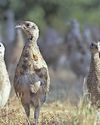
RSPB gives mixed message on shooting
Having recently attended the RSPB’s virtual AGM, Conor O’Gorman discusses the outcome of the charity’s year-long review of game bird shooting

Causeway for concern
Alan Jarrett’s renewed interest in reading takes him down memory lane to an offshore island duck flight that very nearly ended in disaster

Through a purple patch
The Garrows Estate is taking a conservation-focused approach to restoring the wildlife populations and biodiversity on the Scottish heather moorland.
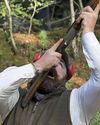
When the wheels fall off
Losing form on a day’s shooting can be infuriating, especially if you’ve been shooting like a god up to that point. Simon O’Leary looks at some common causes and how to remedy them

Beaches, books & bad behaviour!
The annual Kay family vacation to Northumberland offers a chance to give the cockers a blast on the beach – although they don’t always shower themselves in glory, as Ryan Kay recalls...

Using the Stop whistle
Now you’ve instilled the basics, it’s time to up the ante with some more tricky distance work. Howard Kirby explains how to take the core Stop whistle command to the next level
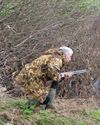
The humble teal
They may be tiny, but as far as Rupert Butler is concerned, the appeal of this little duck is huge. He recalls some of his most memorable nights in pursuit of these aerial acrobats
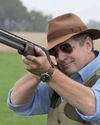
Fab all-rounder
Mike is impressed with the Fabarm Elos B2 Field Notte, which offers great value for money, is suited to fieldwork or clays and is future-proofed for use with steel in all choke constrictions

CALL OF THE WILD
Dom Holtam reconnects with one of the purest forms of shotgun shooting as he walks-up woodcock over pointing dogs in the Scottish Highlands
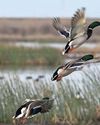
A yen for the Fens
Tony Jackson recounts a memorable duck flight over an area of Fenland in Norfolk with his friend and author, the late Alan Savory